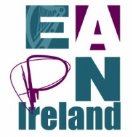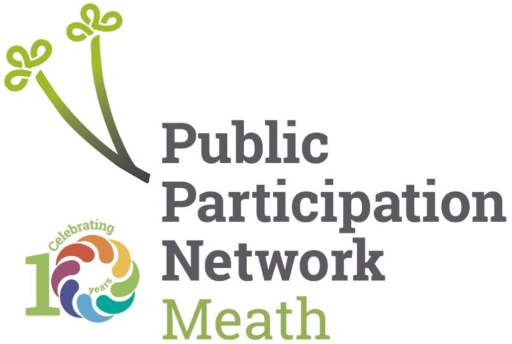European Anti-Poverty Network Ireland – Newsflash March 2021

EAPN Ireland News:
Social Inclusion Forum 2021- Registration open
You are invited to attend the annual Social Inclusion Forum, which will be taking place from 12th to 16th April 2021.
The theme of this year’s Forum is “Implementing the Roadmap for Social Inclusion: reducing poverty and improving social inclusion” and it will take place online for the first time in line with government guidelines.
2020 saw the publication of the Roadmap for Social Inclusion 2020-25: Ambition, Goals, Commitments, the arrival of Covid-19 and related restrictions on economic and social life, as well as the publication of a new Programme for Government. This is the backdrop against which the 2021 Social Inclusion Forum will take place.
Online sessions have been scheduled over the week starting on Monday 12th April with an opening plenary that we encourage all to attend, followed by a series of 90 minute workshops (optional) across 3 days on Roadmap topics including Core Essentials; Supporting Families and Children; Expanding the Opportunity of Employment; Making sure voices are heard. The Forum will close on Friday 16th April with a round up closing plenary.
Registration plus full details of the programme and workshops are available to view here. Registration for the Forum closes on Thursday April 8th.
EAPN Ireland Statement on the Action Plan for the Implementation of the European Pillar of Social Rights
The Action Plan for the implementation of the European Pillar of Social Rights was published on March 4th. The Action Plan sets three headline targets for the EU to be achieved by 2030:
- At least 78% of people aged 20 to 64 should be in employment.
- At least 60% of all adults should participate in training every year.
- The number of people at risk of poverty or social exclusion should be reduced by at least 15 million.
While we welcomed the publication of the plan, EAPN Ireland has concerns that the target for poverty reduction is not ambitious enough.
You can read EAPN Irelands statement on the plan here.
Members News:
Human Rights and Equality Grants Scheme 2021-2022
The Human Rights and Equality Grants Scheme is still accepting applications for grants, with a closing date of April 22nd. The scheme is open to civil society organisations, including community and voluntary organisations, non-governmental organisations, rights-holder groups, area-based community groups, communities of interest groups, and trade unions from across the country, who can bring forward proposals on empowering people and communities to understand and claim their rights and be part of decision-making that affects them. This includes people at risk of discrimination protected under the nine grounds of Ireland’s equality legislation: gender, civil status, family status, age, sexual orientation, disability, race, religion, and membership of the Traveller community and people at risk of poverty and social exclusion. You can find out further information here.
One-in-four people report cutting back on food and utilities due to pandemic
A significant proportion of Irish society are facing a multitude of financial pressures due to the pandemic including loss of income, increased household expenditure on basics, erosion of savings to meet ordinary living expenses, falling behind on bills and being forced to cut back on essentials like food, heating and electricity according to RED C research commissioned by the Society of St Vincent de Paul (SVP).
- Data from a representative sample of 1026 adults, shows that 43% of the population reported experiencing at least one form of financial strain due to the Covid-19 pandemic with:
- 24% cutting back on food, heating or electricity due to cost.
- 22% using savings to meet ordinary living expenses.
- 14% falling behind on bills such as rent, mortgages, utilities or other regular payments.
- 7% going into debt (personal loan, credit cards) to meet ordinary living expenses.
You can read the full SVP report here.
EAPN Ireland is also currently engaging with the issue of income inadequacy, the ability of households to meet basic expenses and the increasing dependence of households on the Community and Voluntary Sector for the provision of basic necessities, an issue which existed before COVID-19 and has been exacerbated by COVID-19. Further information will follow in due course.
Join Comhlámh and the Department of International Development Maynooth- ‘Education, Emancipation and Social Change’
What role does education play in social change? What links learning and emancipation? In this month’s #FirstWeds Comhlámh and Maynooth University are bringing together a diverse panel involved in community, adult and development education to explore different approaches and practice in learning for a better world. This discussion will take place on April 7th at 7pm. You can view the discussion and find out more information here.
EAPN Europe News:
Social European cannot be strengthened without binding measures/ EAPN Europe reaction to the EPSR Action Plan
EAPN Europe released its initial reaction to the European Commission’s Action Plan on the European Pillar of Social Rights, published on 4 March 2021. You can read the full EAPN Europe statement here.
Working towards a socially Inclusive and Poverty Proof Recovery from the Pandemic- EAPN Assessment of the ASG’S and Joint Employment Report
EAPN Europe has presented an assessment of the Annual Sustainable Growth Strategy (ASGS) 2021 and of the EC proposal for a Joint Employment Report (JER) 2021. EAPN’s main concern is whether social rights and the fight against poverty are given an equal role in the ‘triangle’ of economic, environmental and social objectives. You can read more here.
EU Institution News:
2021 Report on Gender in the EU Report | European Commission
One year ago, the Commission adopted its Gender Equality Strategy 2020-2025. COVID-19 has proven to be a major challenge for gender equality. This report presents the available data on the gendered impact of the COVID-19 crisis for each area of the strategy and outlines the measures the EU and Member States have taken to mitigate these effects. You can read the report here.

